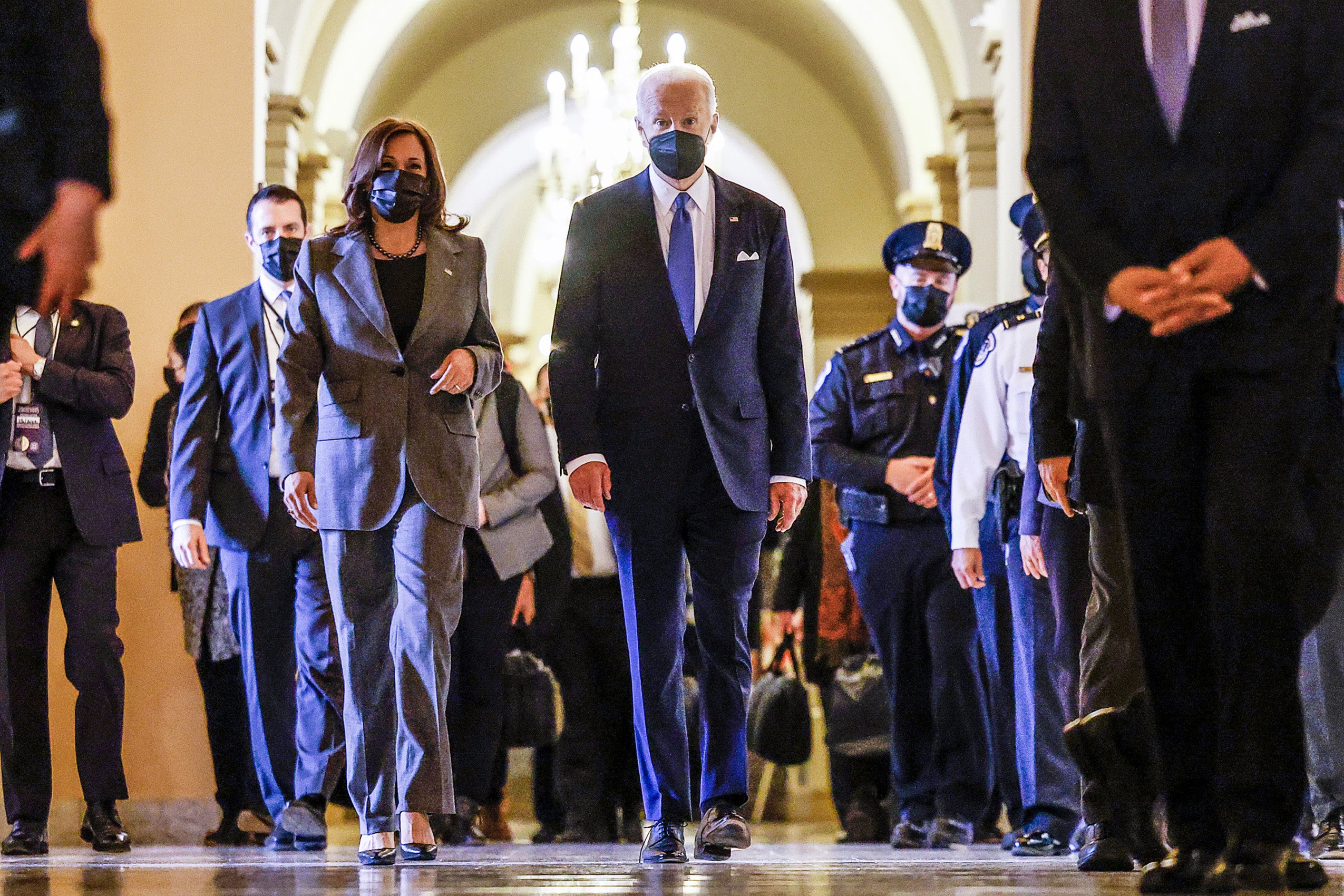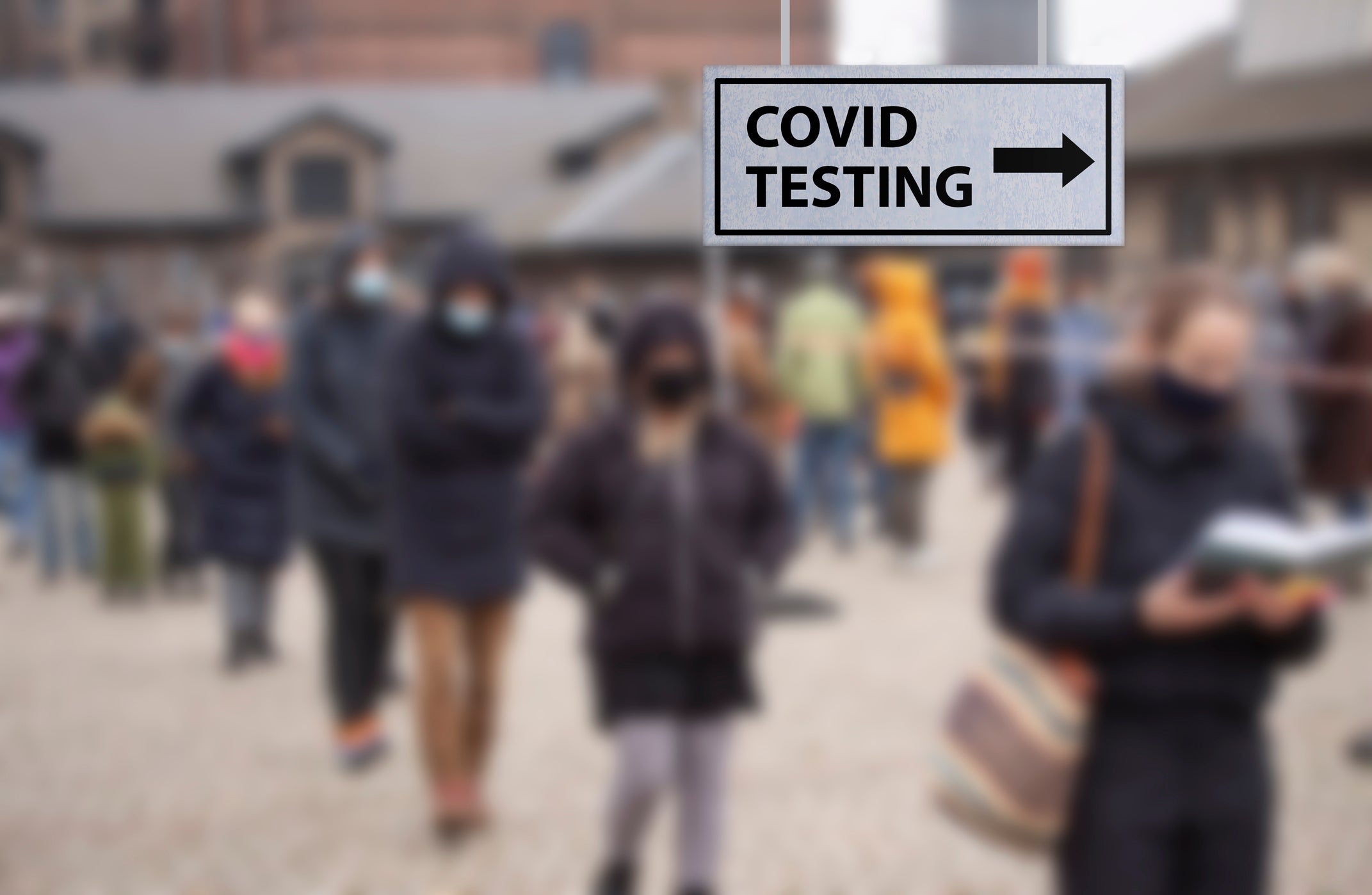People
Glenn Cohen
-
How NFTs could transform health information exchange
February 4, 2022
An article co-authored by Glenn Cohen: Personal (sometimes called “protected”) health information (PHI) is highly valued (1) and will become centrally important as big data and machine learning move to the forefront of health care and translational research. The current health information exchange (HIE) market is dominated by commercial and (to a lesser extent) not-for-profit entities and typically excludes patients. This can serve to undermine trust and create incentives for sharing data (2). Patients have limited agency in deciding which of their data is shared, with whom, and under what conditions. Within this context, new forms of digital ownership can inspire a digital marketplace for patient-controlled health data. We argue that nonfungible tokens (NFTs) or NFT-like frameworks can help incentivize a more democratized, transparent, and efficient system for HIE in which patients participate in decisions about how and with whom their PHI is shared.
-
Reassessing Psychedelics
January 31, 2022
A new Harvard Law initiative examines the legal and ethical aspects of therapeutic psychedelics
-
Faculty Books in Brief: Winter 2022
January 31, 2022
A wide range of books by faculty, from a collection of essays on the ethics of consumer genetic testing to a look at the fate of constitutional institutions in populist regimes to a delightful children's book by a legal philosopher
-
Weighing President Biden’s first year
January 18, 2022
In this series, Harvard Law experts turn a critical eye to the Biden administration’s efforts on health care, the economy, criminal justice reform, and other areas important to Americans — and share their thoughts on its agenda for the future.
-
Fact check: False claim that Nuremberg Code prohibits mask mandates
January 14, 2022
The claim: The Nuremberg Code says 'mandating masks on the citizens of a nation' is a war crime. As the highly contagious omicron coronavirus variant spreads around the country, several states have mask mandates in place. Some social media users say they violate a set of research ethics dating back to World War II. As evidence, a Jan. 3 Instagram post claims to show a section of the Nuremberg Code. ... “The claim that this violates the Nuremberg Code is 100% false," I. Glenn Cohen, deputy dean of the Harvard Law School, said in an email.
-
An op-ed by Carmel Shachar and I. Glenn Cohen: “There are three quarters of a million new [COVID] cases yesterday. . . [t]hat is 10 times as many as when OSHA put in this ruling. The hospitals are today, yesterday, full. . . . Can you ask us—is that what you are doing now—to stop this vaccination rule with nearly one million people, nearly three quarters of a million people, new cases every day?” This was the dramatic question asked on Friday by Supreme Court Justice Stephen Breyer of Scott Keller, one of the attorneys seeking a stay of an Emergency Temporary Standard (ETS) promulgated by Occupational Safety and Health Administration (OHSA) in the case of National Federation of Independent Business v. Department of Labor. This so called “Test-or-Vaccinate” mandate requires employers across the country with more than 100 employees to implement either vaccination or testing and masking policies for their employees. A majority of the Justices seem poised to endorse not only a temporary stay of the standard, but a permanent injunction against OSHA’s power to act, and the country will be worse for it.
-
Glenn Cohen and Carmel Shachar reflect on the administration’s successes, failures, and agenda for the future.
-
The Pandemic Preparedness Program: Reimagining Public Health
January 7, 2022
An article by Eli Y. Adashi and Glenn Cohen: On September 2, 2021, the White House released its long-awaited pandemic preparedness proposal titled American Pandemic Preparedness: Transforming Our Capabilities.1 Called for by presidential executive order 13987 and National Security Memorandum 1, the proposal, 8 months in the making, comprises a whole-of-government review and update of US national biopreparedness policies.2,3 The pandemic preparedness proposal is ambitious and all-encompassing and acknowledges that the transformation of “our medical defenses” will require “extensive scientific and technological efforts.”1 In this Viewpoint, we review the leading objectives of the pandemic preparedness proposal, discuss the outcome of comparable past federal efforts, and emphasize the imperative of intragovernmental coordination.
-
Trump’s Supreme Court picks Amy Coney Barrett and Brett Kavanaugh could decide the fate of Roe v. Wade
December 1, 2021
Mississippi on Wednesday is challenging Roe v. Wade, the law of the land for nearly 50 years. Nine Supreme Court justices will hear arguments on whether to preserve or undo abortion rights, but, experts say, Americans should pay close attention to two members of the court: Justices Brett Kavanaugh and Amy Coney Barrett. Legal scholars anticipate that either one of them could have an outsize impact in the case of Dobbs v. Jackson Women's Health Organization and determine the fate of reproductive rights in the United States. ... "It's very clear where Justice Kagan, Justice Sotomayor, and Justice Breyer are," I. Glenn Cohen, a professor at Harvard Law School, told Insider. "They are going to vote to strike down the Mississippi law as unconstitutional … They don't want to reverse Roe v. Wade. This has been consistent in their jurisprudence." ... "Justice Thomas and Justice Alito are pretty clear from their prior votes that they are on the side of thinking that the right to abortion in the Constitution is wrong. It doesn't exist," Cohen said. "So their votes are pretty set."
-
Court’s interest in Texas could signal end of Roe
November 1, 2021
Since 2013, more than a dozen states have tried to ban abortion as soon as a sonogram can pick up the thump-thump of an embryonic heartbeat. That’s about six weeks, an egregious constitutional affront under Roe vs. Wade. No court has allowed a ban so early in pregnancy to stand. The Supreme Court never even granted an appeal — until Texas concocted Senate Bill 8. ... “We may get some tea leaves from [Monday’s] argument, but I would be very surprised if there were major changes that come directly out of it,” said I. Glenn Cohen, deputy dean of Harvard Law School and an expert on medical ethics and the law. “If there is going to be a big change in abortion law itself, i.e., what the Constitution prohibits states from doing, that’s likely to come at least initially in Dobbs.”
-
Vaccine Mandates Withstand Challenges as Suits Surge Across U.S.
October 14, 2021
Workplace Covid-19 vaccination mandates have largely survived a first wave of legal challenges even as the number of lawsuits over them has soared with their expanded use. ...Two months later, regulators upgraded the vaccine made by Pfizer Inc. and its partner BioNTech SE from “Emergency Use Authorization” to full “Biologics License Application” approval. “Once the Pfizer vaccine made it from EUA to BLA, that took the winds out of the sails of an argument that seemed more rhetorically if not legally powerful,” said Glenn Cohen, director of Harvard University’s Petrie-Flom Center for Health Law Policy, Biotechnology, and Bioethics. “Without that card to play, the challengers have much weaker-sounding arguments.”
-
The estate of Henrietta Lacks has filed a lawsuit against Thermo Fisher Scientific, which sells a commercial line of HeLa tissue, accusing the corporation of profiting from Lacks' "stolen" cells. ... Yasmin Amer:: A spokesman for Thermo Fisher Scientific told NPR the company has no official response yet. What happened to Lacks became more widely known after Rebecca Skloot's 2010 book and an HBO movie starring Oprah. Glenn Cohen teaches law and bioethics at Harvard and says what happened to Lacks wasn't unusual. Glenn Cohen: Certainly historically, everybody agrees that what was done to Henrietta Lacks, as it was done to many Black women who sought hospital care at that time, was a moral wrong. ... Cohen: There's a legal matter at the time in which the tissue was taken. It was not the ethical rules of the day to require informed consent.
-
From teachers to airlines workers, some employees who have faced termination for not complying with their company's COVID-19 vaccine mandates have gone to court to fight the decisions. Some of the plaintiffs, such as New York City Department of Education employees, a handful of Los Angeles county public employees and United Airlines workers, have argued that the mandates should be removed, questioning the rules' constitutionality and some contending their religious rights weren't observed. ... Glenn Cohen, a health law and bioethics professor at Harvard Law School, told ABC News that strong legal precedent dating back to the early 20th century gives businesses and governments the legal backing to enforce the mandates. "They're pretty weak," Cohen said of the lawsuits. "The judges that have denied them have come from across the political spectrum, and from across the country, because the plaintiffs' arguments don't have any weight."
-
Labor Department Officials Frustrated With White House Over COVID-19 Vaccine and Testing Mandate
September 27, 2021
When President Joe Biden directed the Occupational Safety and Health Administration (OSHA) on Sept. 9 to impose strict COVID-19 vaccination and testing protocols on large businesses, the OSHA employees were ready. ... Public opinion may not have been behind the original ETS, either. Support for a widespread federal response is higher now than it was at the start of Biden’s term, says N’dea Moore-Petinak, a doctoral candidate at the University of Michigan and coauthor of the book Coronavirus Politics. And businesses may be more open to a vaccine and testing mandate than they would be to a masking mandate like the one included in the original ETS, says Glenn Cohen, an expert on health law and bioethics at Harvard Law School. “While I think masking is terrific, politically it’s a harder sell and the compliance rates may be lower,” he says. “With vaccination, it’s easier to ensure compliance.”
-
FDA deploying ‘fast-track’ arsenal against COVID-19
September 23, 2021
Food and Drug Administration officials said in July that Pfizer’s application for full approval of its COVID-19 vaccine would enjoy “priority review,” and set a target deadline for finishing by January 2022. They beat the deadline easily, licensing the shots in late August. That’s faster than other vaccines and drugs that have been marked as priorities for the agency. ... “EUAs were used pretty sparingly till recently. There was some use in 2009 related to H1N1, but other than that you don’t see many notable uses,” said I. Glenn Cohen, a health expert at Harvard Law School. “In terms of its pre-history, you might trace it to some of the pressure FDA faced during the AIDS crisis at being too slow to meet the needs of the infected, which among other things prompted it to introduce a priority review designation and accelerated-approval program in 1992.”
-
Biden careful not to play favorites, but Pfizer enjoys some ‘comparative advantage’ in mandate era
September 17, 2021
The COVID-19 vaccine from Pfizer and BioNTech was the first to reach American arms, and it accounts for more than half of the 380 million doses administered in the U.S. so far. ... Still, analysts don’t expect Mr. Biden to speak on behalf of Pfizer. His team spent months saying a similar vaccine from Moderna and a one-shot option from Johnson & Johnson were highly effective against COVID-19. “Why the ecumenical attitude? First off, they don’t want to tell Americans who received one up until now they have to be revaccinated. Second, J&J, with its one-dose regimen, for example, has been preferred by some communities. And when people are hard to reach or mildly vaccine skeptical, the ability to provide only one, not two, doses may be a big plus,” said I. Glenn Cohen, a health care expert at Harvard Law School. He said emerging data suggests the vaccines perform differently for fighting the delta variant or maintaining immune responses. “So we may reach a point where the administration will more strongly endorse one over the other. But at the moment, I don’t see them going there, and I think it would take a lot for them to get to that point,” he said.
-
Biden Orders Shots for Millions, Calling Unvaccinated a Threat
September 10, 2021
President Joe Biden said he’d order all executive branch employees, federal contractors and millions of health-care workers to be vaccinated against the coronavirus, and that his administration would issue rules requiring large private employers to mandate shots or testing. ... The executive branch is on strong footing to require staff vaccinations, particularly since the Pfizer Inc.-BioNTech vaccine received full approval, rather than just emergency authorization, according to Glenn Cohen, a law professor at Harvard Law School. The OSHA rule is likely to face the most legal challenges, with likely litigation over whether the agency is exceeding its authority.
-
VACCINE Fact-checking 3 claims about proof of vaccination requirements
September 8, 2021
As the highly contagious delta variant continues to spread across the United States, many businesses and cities have been rethinking their COVID-19 vaccination requirements. In August, New York City became the first major U.S. city to announce that people who are fully vaccinated against COVID-19 need to show proof of vaccination in order to dine indoors, work out at the gym or go see a movie. Can private businesses ask customers for proof of COVID-19 vaccination? ... Glenn Cohen, a professor at Harvard Law School, told VERIFY that private businesses asking for proof of vaccination is not a violation of the Health Insurance Portability and Accountability Act, or HIPAA. According to the U.S. Department of Health and Human Services, HIPAA only applies to covered entities, such as health care providers and health insurers, and their business associates. “Because the average business is not a covered entity or a business associate of a covered entity within the meaning of HIPAA, the statute does not prohibit them from asking them about vaccination status,” said Cohen.
-
A community of belonging
September 2, 2021
At this year's First Class dinner, Harvard Law School Dean John F. Manning, faculty, and students offer support and advice to first-generation students.
-
An op-ed by I. Glenn Cohen: The COVID-19 pandemic not over for the U.S., but the Delta variant means the “war has changed,” as leaked CDC slides made clear. The development and production of COVID-19 vaccines are an achievement on the scale of the Manhattan Project, but unless and until more of the U.S. public is vaccinated infections, hospitalizations, and deaths are likely to increase in scale across much of the country. After an impressive roll out, our vaccination rates have stalled. Canada, which faced challenges early on getting enough doses and thus started later than the U.S., by mid-July had surpassed the U.S. both in first-dose and full vaccinated and enters August much better poised to confront Delta.
-
Petrie-Flom Center announces new research initiative on psychedelics law and regulation
July 7, 2021
The Petrie-Flom Center at Harvard Law School has announced a new research initiative, the Project on Psychedelics Law and Regulation, to promote safety, innovation, and equity in psychedelics research, commerce, and therapeutics.





